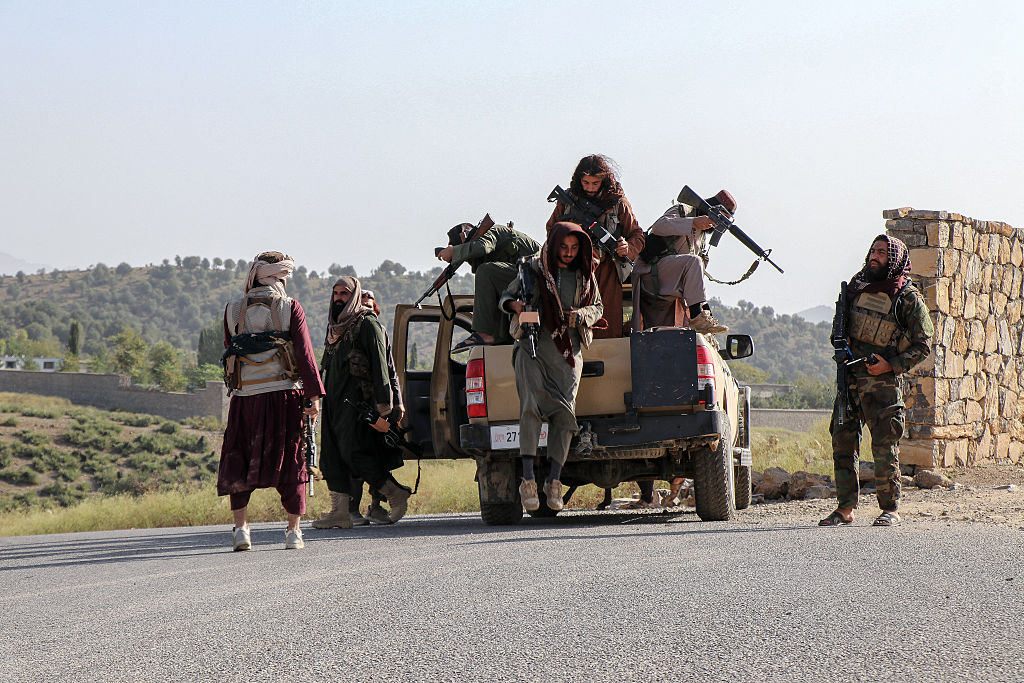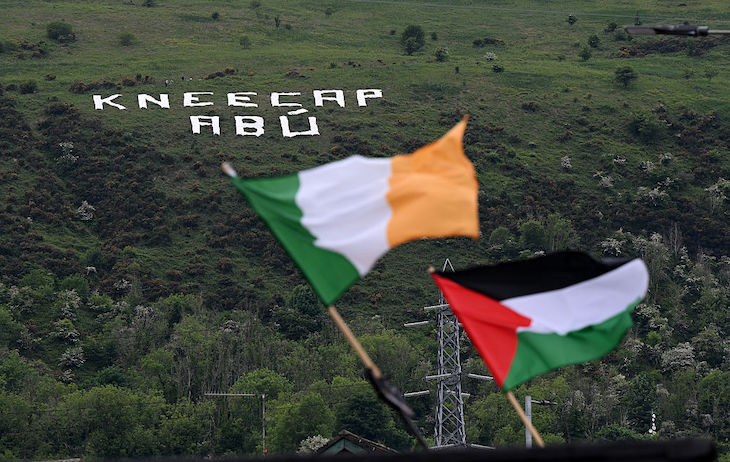The futile peace talks taking place between Pakistan and the Taliban over cross-border terrorist attacks have produced at least one revelation: Islamabad has become the Dr Frankenstein of the region.
For decades, Pakistan’s generals believed they could manipulate Islamist militants and use them as instruments of their foreign policy. They thought it would be simple to create pliant proxies for ‘strategic depth’ in Afghanistan and leverage against India. Now the Taliban – battle-hardened, emboldened by victory and appeased by super powers – appear to be dictating the terms. The monster has turned on its master.
Islamabad, long the sponsor and protector of the Taliban, now finds itself negotiating from a position of weakness
The only surprise is that anyone in Islamabad might still be surprised.
As part of its 2020 deal with the US, the Taliban was meant to break ties with Al-Qaeda and prevent Afghanistan being used as a launchpad for attacks. Yet Al-Qaeda is again operating training camps inside Afghanistan, and other extremist networks have found safe havens there. This is a development that threatens not only neighbouring states such as China and Russia but modern Muslim nations like Pakistan, where women go to university and civic life operates beyond clerical rule.
Just days after the Istanbul talks collapsed, and cross-border firing continued, Pakistan’s defence minister, Khawaja Asif, told Pakistani television his team had stayed behind to salvage a ceasefire. ‘Our stance, that there will not be any attacks on us from their land and they will not back such attacks, is a sticking point,’ he said. ‘If an understanding can be reached on that, it will be a good thing.’
But he added that there had ‘been no development that you can have high hopes from.’ News on Thursday that the two sides would meet again did little to inspire confidence that outstanding issues had been resolved.
Indeed, Asif’s comments were a telling admission. Islamabad, long the sponsor and protector of the Taliban, now finds itself negotiating from a position of weakness. The Tehrik-i-Taliban Pakistan (TTP), also known as the Pakistani Taliban, is waging war on the Pakistani state from bases inside Afghanistan. The group has carried out hundreds of attacks in recent months, killing soldiers, police and civilians, while the Taliban simply deny any responsibility.
The Istanbul meeting was the second attempt in a matter of weeks to broker peace along the 1,600-mile colonial-era Durand Line, a border the Taliban do not recognise and routinely violate as it cuts through traditional Pashtun tribal territory they believe should be part of Afghanistan.
The first round of talks, hosted in Doha under Qatari auspices, produced a fleeting ceasefire before violence resumed. The second, convened by Turkey in its bid to assert its influence, ended with nothing but recrimination as both sides threatened war.
The real reason for the breakdown, according to a confidential report by Turkey’s National Intelligence Organisation (MIT), lay not in Islamabad’s position but in the Taliban’s own implosion. The assessment, seen by The Spectator, concluded that ‘the primary point of failure was internal factionalism within the IEA (Islamic Emirate of Afghanistan) leadership.’
MIT identified three competing power centres inside the Taliban regime: the ‘Kandahar faction’ around the reclusive emir Haibatullah Akhundzada; the ‘Kabul group’ of administrators and envoys; and the ‘Khost faction’ drawn from the movement’s security ranks and led, according to Afghan sources, by interior minister Sirajuddin Haqqani, who aspires to be Supreme Leader.
Each, the report said, is working at cross purposes. ‘Concessions tentatively agreed by one side were subsequently countermanded by another,’ it states, describing the process as ‘an inability to establish a coherent chain of command for diplomatic engagement’.
The report says the Taliban delegation presented a ‘unified front’ in public but was ‘compromised by significant internal divisions’. While the Pakistani side’s position was ‘legitimate and constructive,’ the Taliban’s incoherence rendered negotiation ‘structurally unviable’.
The report also detailed clandestine contacts between Taliban factions and India’s intelligence agency, the Research and Analysis Wing or RAW, during the talks. MIT said this contact – which comes just weeks after New Delhi increased diplomatic contact with the Taliban – amounted to ‘tactical guidance aimed at prolonging the stalemate’ with Pakistan, India’s arch enemy.
It named the ‘Khost faction’ as the most receptive to RAW influence, which was intended to keep Pakistan’s security agencies preoccupied on their western flank. The MIT assessment warns that the Taliban’s internal disunity, and its exposure to external manipulation, makes any early resumption of productive dialogue ‘unlikely’.
Pakistan’s frustration is shared by those who know the Taliban best.
Asif Durrani, a former Pakistan ambassador to Afghanistan, said the talks failed for familiar reasons: the Taliban’s habit of offering promises they never intend to keep.
‘Verbally they are ready to give guarantees, but not in written form,’ he said in a recent interview. ‘It has become a habit with the Taliban, they are shy of negotiating at the table and think that by delaying, the issue will resolve itself. That is no longer the case.’
Durrani said that over years of contacts, the Taliban repeatedly assured Islamabad they would restrain the TTP. ‘They promised to take action against the TTP and discourage them from crossing into Pakistan,’ he recalled. ‘But it never happened. Those incidents increased. The Taliban have lost their credibility.’
His assessment aligns with reporting by the UN Security Council that the TTP is now the largest terrorist group operating inside Afghanistan. ‘The Security Council’s reports are clear,’ Durrani said. ‘A dozen other groups… have taken shelter there, yet the Taliban deny it.’
That denial, he warned, had become both delusional and self-defeating.
Asif, Pakistan’s defence minister, has shown Islamabad’s frustration, threatening on X to ‘completely obliterate the Taliban regime’. Responding to Taliban threats against Islamabad, he said ‘any terrorist attack or any suicide bombing inside Pakistan’ would result in their doom.
Durrani believes the Taliban’s refusal to acknowledge their complicity will backfire. ‘By denying the existence of these terrorist groups, they are isolating themselves,’ he said. If the denials continue, Islamabad could be forced into military retaliation.
For Pakistan’s generals, the dilemma is existential. Having lost control of the Taliban, and the ‘strategic depth’ they sought in Afghanistan, they now face strategic exposure at home.
For Pakistan, the implications are devastating: not only has it lost influence over the Taliban, but there may no longer be a coherent Taliban leadership to influence.







Comments